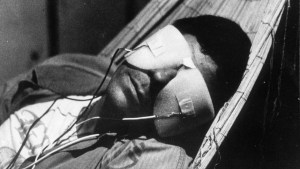Star Trek veteran Nichelle Nichols is not just a trailblazer in television, but the actress behind one of the most beloved women in TV history and someone who has used her celebrity both to continue promoting Star Trek as a brand and to improve the world around her.
Videos by ComicBook.com
Nichols said during an interview this past weekend at Wizard World Chicago that she quietly hoped for the kind of universal acclaim for Star Trek that would make her a TV icon, and that nearly fifty years later, when it was time to hand the role of Nyota Uhura over to Zoe Saldana for the JJ Abrams-directed reboot of the franchise, she was happy to do so.
“She’s great,” Nichols told ComicBook.com. “When I was leaving the country at the time, I told her I gave her my best and wished her the best, and she did very, very well with it.”
Her advice for the incoming cast of Star Trek: Discovery, a series that will launch directly on CBS’s streaming service and so is one of the more controversial shows in an always-controversial franchise, was equally simple:
“Do your best and be what you want to be.”
She had somewhat more to say about the role she played in recruiting women and minorities into the space program.
At the time Star Trek was first on the air, there were no real-world analogues to a character like Uhura; NASA remained largely white and male, and in fact its recruiters were expected to keep it that way, believing that women and minorities didn’t have “the right stuff.”
Nichols thought that was nonsense, and stated it publicly enough and often enough that NASA asked her to help them recruit from those communities.
“They hired me to recruit the first woman and minority [for the space shuttle program],” Nichols said. “They had heard me say ‘There are no minorities; I know dozens [who would be able to serve],’ and they said ‘find me one who will fit this criteria and we will hire a dozen.’ And I’ll be darned if they didn’t have to hire a dozen. They wrote me after that and said, ‘we thank you very much, we were right, we’re carrying on with everybody; if they’re qualified, they’re with us.’”








